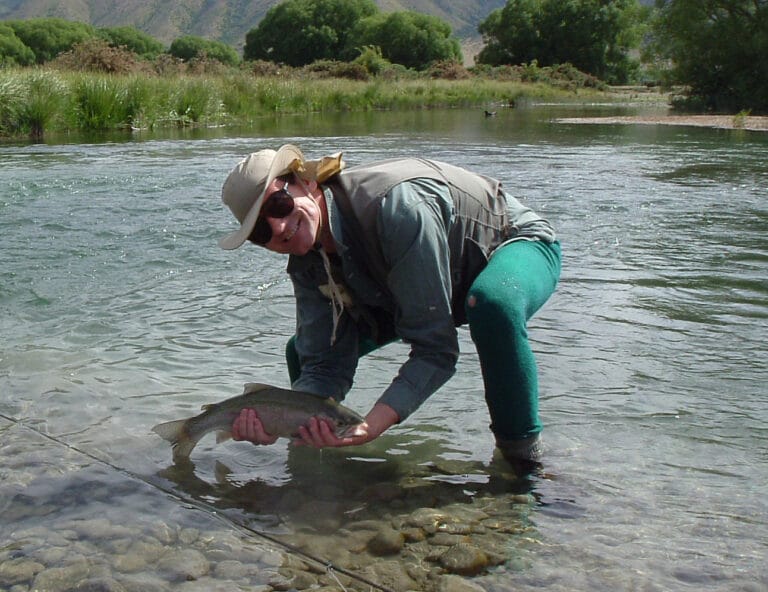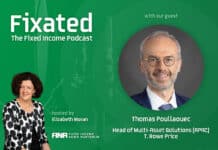
Bill Bovingdon is the chief investment officer at Altius Asset Management. Altius is an experienced, specialist fixed interest asset manager that is 100% owned by Australian Unity. It actively manages diverse portfolios of fixed interest securities with a particular emphasis upon sustainable investment and through its financial and ESG research.
Fixed Income News caught up with Bill to find out a bit more about him and his investment management journey.
Tell us a little about yourself and how you got your career jump started?
These days, I’m described as a veteran of the Australian fixed interest market – just because the first bond I sold matured before Quentin Tarantino’s first film! (Reservoir Dogs).
But, I’ve been busy. Immediately before co-founding Altius in 2011, I was head of Australian fixed income and CEO at Aberdeen Asset Management. Prior to that, I headed up Australian fixed income for Schroder Investment Management and Deutsche Asset Management. My first job in Aust Fixed income was as an issuer of bonds at Treasury Corporation of Victoria. Soon after, I joined the buy-side at Schroders in Sydney in time to be part of Australia’s phenomenal growth as a pension market.
Do you remember a particularly exciting happening or a trade that stands out?
I was involved in a funny incident when I was at Schroders. It was in mid-December one year in the late 90s, I had let my whole team go and do their Christmas shopping.

I was the only person on the desk and then a current account number came out — it might have been the first monthly print over a billion dollars or something like that. Anyway, it shocked the market and rates jumped, and we were short. I was scrambling and bought back our short position and the market realised it had overreacted and recovered. So, I then re-sold the position and got back to exactly where we were before. When the team came back the portfolios were unchanged, but we had added about 30 odd basis points of performance on the day and everyone was scratching their heads asking me, ‘What happened?’ For many years after, in lighthearted moments I could remind them that I didn’t really need them – I was best as a sole trader!
What is the demand like for fixed-income investments at the moment?
Like much of the past decade, low interest rates have made many investors shun traditional fixed income in favour of, initially, term deposits and more latterly, higher yields in sub-investment grade credit, hybrids, mortgage lending or other yield surrogates that aren’t debt at all.
While this is understandable from a return perspective, more savvy investors are aware that the credit cycle is mature, spreads are very tight and central bank support for bond markets can’t go on forever. Most expect that credit markets will be the first to lose active support as per the Reserve Bank of Australia allowing expiry of the Term Funding Facility for local banks in June. As we have seen during previous dislocation in credit markets — Covid-19 related in Q1 2020 and during the GFC — liquidity can evaporate overnight and funds can be gated or introduce prohibitive redemption spreads. The liquidity characteristics of defensive investments are often underappreciated until needed to meet cashflow requirements or investors wanting to take advantage of mispricing in real assets, but can’t liquidate funds that may have been put ‘on the sideline’ for just such an opportunity. That’s where at least some allocation to more traditional fixed income and cash investments comes into their own.
How do you see the issuance of corporate bonds playing out in the current environment, and what are your expectations for the rest of 2021?
Corporate issuance remained strong in Q1 2021 with issuance of around $5.5bn, well above Q1 2020 levels of $1.2bn. Corporates took advantage of the positive market conditions to refinance H2 2021 maturities. This will likely lead to a smaller issuance pipeline for the remainder of the year. While some signs of issuance fatigue did occur late in April, the smaller pipeline in H2 should help support corporate spreads. After almost no domestic bank senior unsecured issuance in 2020/21 we expect to see the banks return following the expiry of the TFF in June. With bank spreads near recent lows it would be expected that senior banks levels would push wider over H21.
What’s the one piece of advice you might give to an investor looking to start investing in fixed income?
Look, I think the advice would be that today we have much more interrelated financial markets, and there’s a necessity to have a breadth of knowledge across not just local bond and credit markets, but also hybrids, the international Sovereign and credit markets, as well as other bond proxies – for example, corporate loans, direct mortgage and other property lending. Investors should get a bit more of a broader understanding of defensive assets rather than becoming too specialised, too early.
Also read:
Australian Unity Altius Bond
US Inflation Figures Are Shocking, But What Is The Underlying Story?
I think we are moving into an era where a thorough understanding and appreciation of the impact of macro factors and global economies will become more important because the central banks will have to delicately withdraw from managing markets after many years, and I think that’s going to be quite a change for a lot of recent investors. They’re going to be part of a market that must actually reflect and price risk, from interest rate, inflation and credit cycles, without overt control from central banks. This will be new for a lot of younger investors and they will need to have their wits about them.
Can you describe the range of funds you offer and their key features?
Altius Sustainable Bond Fund
Launched in 2014, the fund was the first sustainable Australian fixed interest fund offered to the market. The fund invests in companies that not only meet our investment criteria, but also conduct their business responsibly and sustainably based upon assessment of their Environmental, Social and Governance (ESG) performance. The fund provides an absolute/total return approach to investing in the Australian fixed income market, aiming to capture the upside of the bond market, while targeting at least cash returns in a rising interest rate or deteriorating credit risk environment. This is achieved through high conviction, benchmark unaware approach to fixed income management that is both flexible and active.
Australian Unity Green Bond Fund
The Australian Unity Green Bond Fund is a unique impactful approach to investing in the Australian fixed income market. Launched in June 2020 through a joint initiative with Clean Energy Finance Corporation (CEFC), the fund invests in green, sustainable and social bonds with a primary aim of targeting investments that will contribute to lower carbon emissions. It is aligned with Australian Unity’s values to create positive impact and provide investors with an investment seeking responsible investments with a climate focus.
The fund is a benchmark aware product aiming to achieve returns in excess of the Bloomberg AusBond Composite 0+ Yr Index.
AU Sustainable Short-term Income Fund
The Sustainable Short Term Income Fund offers daily liquidity and exposure to short-term money market and medium-term floating instruments that may improve returns and diversification and may suit investors concerned about rising interest rates. The Fund also considers environmental, social and governance issues when selecting investments.
These funds are designed to align with investors’ specific personal and social values without compromising on returns over the long-term.
What do you like to do outside of work, Bill?
I believe that for anybody who wants longevity in their career they need to look after the other side of their life, and they need to stay fit and active.
I try to exercise every day. I enjoy bike riding, which is one of those things I find easier to do first thing in the morning and it’s less taxing on the body than running. I find I can fit it in with my schedule. I ride a road bike and sometimes a mountain bike for a bit of variety.
I’m also very keen on fly fishing – the mecca being New Zealand for walking, camping and fishing in some of their amazing backcountry rivers. Tasmania and the Snowy Mountains are also great fishing spots and a bit closer to home (less emissions!).

































